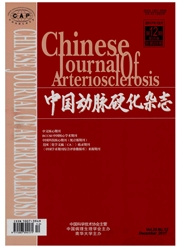

 中文摘要:
中文摘要:
在哺乳动物系统中的可溶性环氧化物水解酶属于α/β水解酶类折叠家族的一个成员,它对环氧脂肪酸具有高度的选择性。环氧花生四烯酸或环氧二十碳三烯酸是其特异性底物。环氧二十碳三烯酸是内皮衍生超极化因子的主要组成成分。因此,环氧二十碳三烯酸具有舒张血管及降低血压作用,同时还具有抗炎、促进纤溶、调节血管生长等多种强大生物学效应,其水解酶的抑制剂—可溶性环氧化物水解酶抑制剂可以通过减少环氧二十碳三烯酸降解、增加环氧二十碳三烯酸水平从而模拟这些作用。因此,可溶性环氧化物水解酶抑制剂作为具有治疗高血压、动脉粥样硬化和炎症性疾病可能性的药物被广泛研究。
 英文摘要:
英文摘要:
The soluble epoxide hydrolase(sEH) in mammalian systems is a member of the α/β-hydrolase fold family of enzymes and it shows a high degree of selectivity for epoxides of fatty acids.The epoxides of arachidonic acid or epoxyeicosatrienoic acids(EET) are particularly good substrates.These EET appear to be major components of the endothelium-derived hyperpolarizing factors(EDHF).As such,EET cause vasodilation and reduce blood pressure.The EET also have variable biological effects,such as anti-inflammatory,fibrinolysis,stimulating angiogenesis,etc.Whereas inhibitors of the regulatory enzyme—soluble epoxide hydrolase inhibitors(sEHi),can increase the level of EET and mimic those effects.Therefore,sEH inhibitors are being extensively studied as a therapeutic potential for the treatment of hypertension,atherosclerosis,and inflammatory diseases.
 同期刊论文项目
同期刊论文项目
 同项目期刊论文
同项目期刊论文
 Evaluation of the lipid lowering ability, anti-inflammatory effects and clinical safety of intensive
Evaluation of the lipid lowering ability, anti-inflammatory effects and clinical safety of intensive 期刊信息
期刊信息
